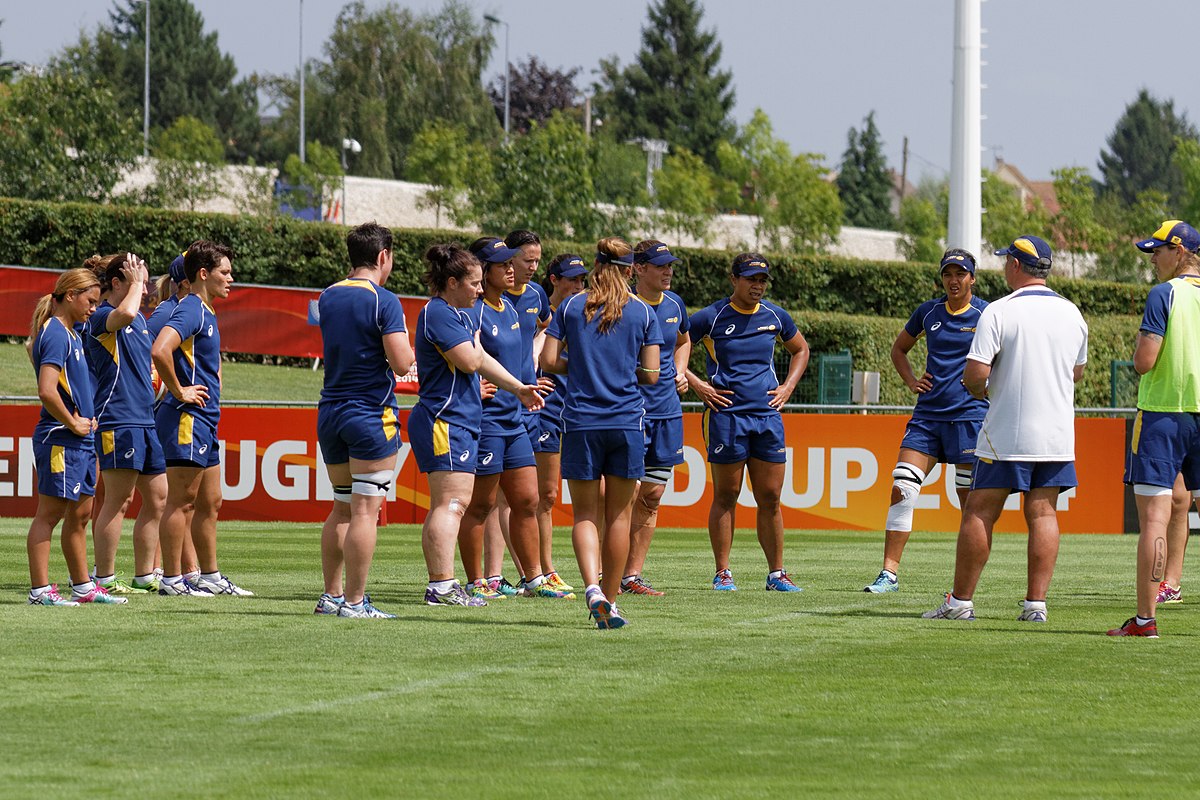Covid-19 has exposed stark gender inequality in sport
Women are doing more sport than ever before. The ranks of female athletes have been steadily growing since they were first allowed to participate in the 1900 Olympic Games. Considered a “male-only” hobby in the past, sport has increasingly become accessible to women and girls around the globe.
Despite this welcoming trend, there are still certain sports that are considered predominantly male. Examples of these are football, rugby and ice hockey. These sports all require strength, stamina and physicality, most are combat or contact sports. Traditionally considered masculine qualities, the stigma associated with them can pose a barrier to women and girls taking up these sports.
Like other contact sports, rugby has historically been seen as a masculine pastime. The images of 6ft muscle-bound men’s players, often sporting broken noses, cauliflower ears and every visible part of their body taped up, does not exactly bring the word “feminine” to mind. Yet why should it – those are men.
Perhaps less prominent, yet no less worthy of recognition, women’s teams the world over challenge this stereotype. Vicky Fleetwood, England flanker and personal trainer, is the embodiment of femininity. Highly active on social media, Fleetwood can usually be seen hitting the gym perfectly groomed, in full-makeup and painted nails. Yet even Fleetwood has been subjected to harassment, simply for being strong and determined to be the highest-level athlete she can be. In a wittily captioned Instagram post, she recounts how “a boy once told me I looked like a man… so I told him if he lifted heavier, he could too”.
Lloyd ignored the gym programme through fear of becoming muscular
Scotland winger Rhona Lloyd, too, came out about her struggle with body image in an interview this summer. Accepted into Scotland U20 at 16, Lloyd ignored the gym programme through fear of becoming muscular – a decision she looks back on as being dangerous considering the strength of other players.
Sadly, women are still judged on their sexual appeal, as opposed to athletic performance. This was exemplified in 2018, when Norwegian footballer Ada Hegerberg, the first woman to receive a Ballon d’Or, was asked to twerk on stage by the host – to much backlash, most notably from tennis star Andy Murray.
Women’s second-class status in sports isn’t helped by the recent Canterbury Irish jersey scandal that prompted the #IAmEnough campaign. With the men’s rugby shirts modelled by Ireland players Bundee Aki, Robbie Henshaw and Connor Murray, the women’s shirts were worn by skinny unknown models who wouldn’t have looked out of place in an H&M catalogue.
While Canterbury immediately backtracked, the RFU has yet to make a statement, giving the impression that rugby unions still view women’s rugby as inferior despite their amazing strides over the last decade.
This is an achievement considering girls have limited options for taking up the sport
Rugby is the fastest-growing sport among women in the UK, and with a 60% increase globally since 2013, one in four rugby players are now female. This is due largely to TV coverage of the Six Nations and, since 2017, the Tyrrells Premier 15s. This is in and of itself an achievement considering girls have limited options compared to boys for taking up the sport.
A large majority of women players’ first experience of rugby is at university, in contrast to men who have been playing since primary. At Warwick, the Women’s Rugby Union team has few players with previous experience of the game, with many transferring to rugby from other sports.
Women’s sport has always taken a backseat to the men’s competitions, as well as taking the brunt of the financial fallout when hardship hits sponsors, as has happened this summer with the loss of revenue due to Covid-19.
Lockdown has hit women’s sport particularly hard, with women’s rugby union Tyrrells Premier 15s, women’s football Super League and Championship, and women’s netball Superleague competitions all cancelled. In contrast, the men’s football Premier League resumed in June and ended late July, with the 2021 League to start on effectively on schedule.
From funding and sponsorship difficulties, to body shaming and sexism in sport, women in formally male-only sports face many hurdles when it comes to being afforded equal opportunities, and equal respect, to their male counterparts. A drastic increase in sponsorship, media coverage and local participation initiatives are needed if the women’s game is to be lifted to the same profile as the men’s.

Comments